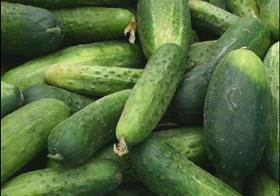
The European Commission has indicated it may increase a proposed €150m aid package for vegetable producers adversely affected by a fall in market demand following the recent E.coli outbreak in Europe.
At a news conference in Luxembourg, Agriculture Commissioner Dacian Ciolos suggested a revised proposal could be forthcoming as early as Wednesday 8 June after a number of groups raised objections to the initial package.
'I committed myself to review this figure, the level of compensation, and to come back with a substantially increased proposal as soon as tomorrow,' Ciolos told reporters.
The EC's original proposal represented around 30 per cent of total losses, but nine EU countries including Spain, France and Germany insisted compensation should amount to 100 per cent of losses.
The EC is understood to be prepared to increase its offer, although full compensation is thought unlikely.
The revised proposal set to be drafted will be voted on by a committee of member state representatives and, once approved, emergency funding could be paid to producers by the end of June.
'Not enough'
European farming cooperatives union Copa-Cogeca welcomed as 'a step in the right direction' the EU's proposed €150m rescue package to help EU fruit and vegetable producers hit by the E.coli outbreak, but also warned it was 'insufficient and will only cover one third of their losses'.
Underlining the importance of emergency measures in helping to pull the sector out of the current crisis, the organisation said it expected that the European Commission would issue new proposals 'as soon as possible'.
Speaking in Luxembourg at an emergency meeting of EU agriculture ministers, Copa vice-president Albert Jan Maat argued EU producers and agricultural cooperatives had suffered enormously by this outbreak.
'Losses reach up to €400m per week in eight member states, with some farmers and cooperatives already forced out of business,' he said. 'EU fruit and vegetable prices have plummeted and consumption has fallen dramatically.'
He continued: 'In some regions of the EU, 100 per cent of cucumbers produced were destroyed last week, whilst 80 per cent of total vegetable production is being destroyed because there is no outlet for it on the market.
'Farmers and cooperatives must recover their costs for these exceptional withdrawals. Today's proposal would recover only one third of the economic losses of a week.'
To bring the sector out of this crisis, Cogeca vice-president Eduardo Baamonde Noche insisted stronger action was required.
'Production of vegetables is coming to a standstill and producers must be given economic assistance for a limited period of time,' he commented. 'An EU promotion campaign for EU and non-EU countries is also required to boost consumption of EU fruit and vegetables and restore consumer confidence.
'We consequently call on the EU to rapidly put forward proposals outlining emergency measures to help the sector recover, with 100 per cent financing from the EU budget. The overall budget of the EU fruit and vegetable rescue package must be increased substantially in order to recover the damages suffered by the sector.'
In the light of recent laboratory tests, which found suspected beansprouts not to be contaminated with E.coli, Copa-Cogeca also urged the EU to reaffirm that EU vegetable production follows the highest standards in the world and is safe to eat.



